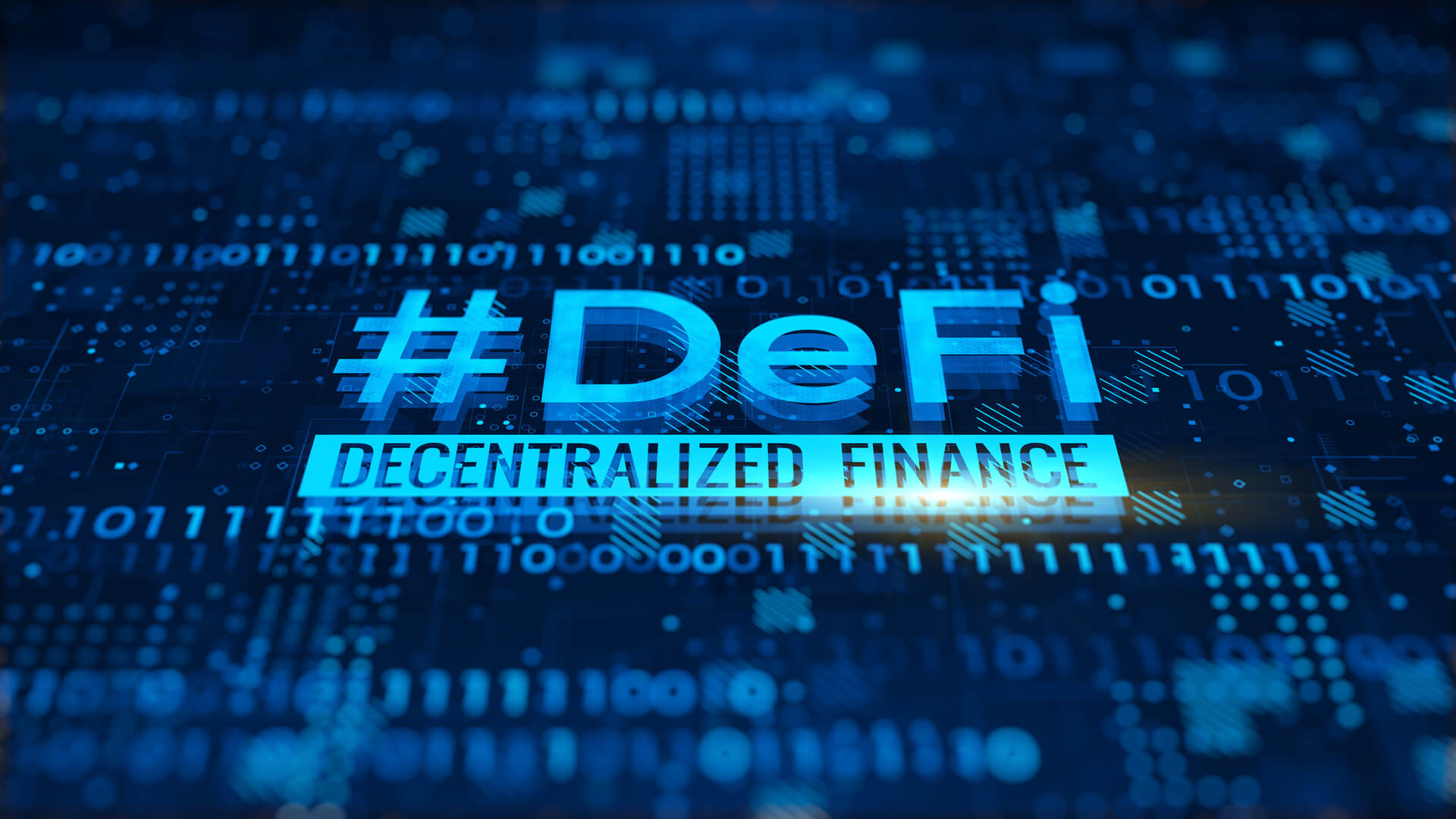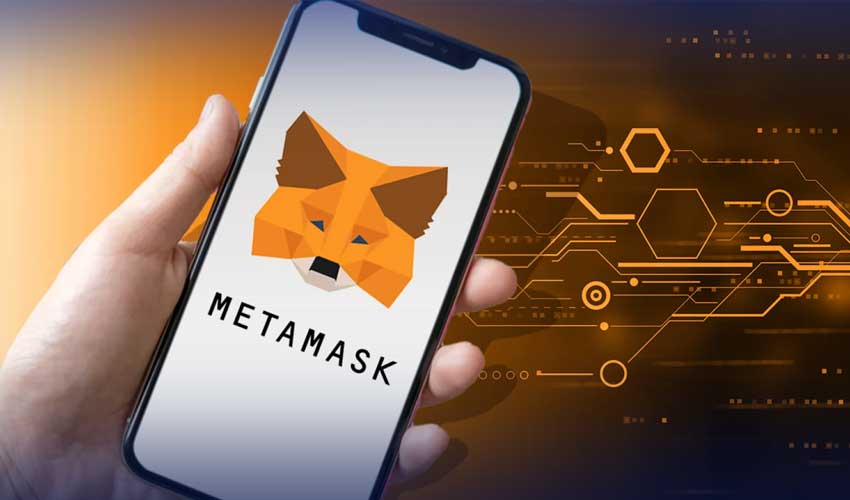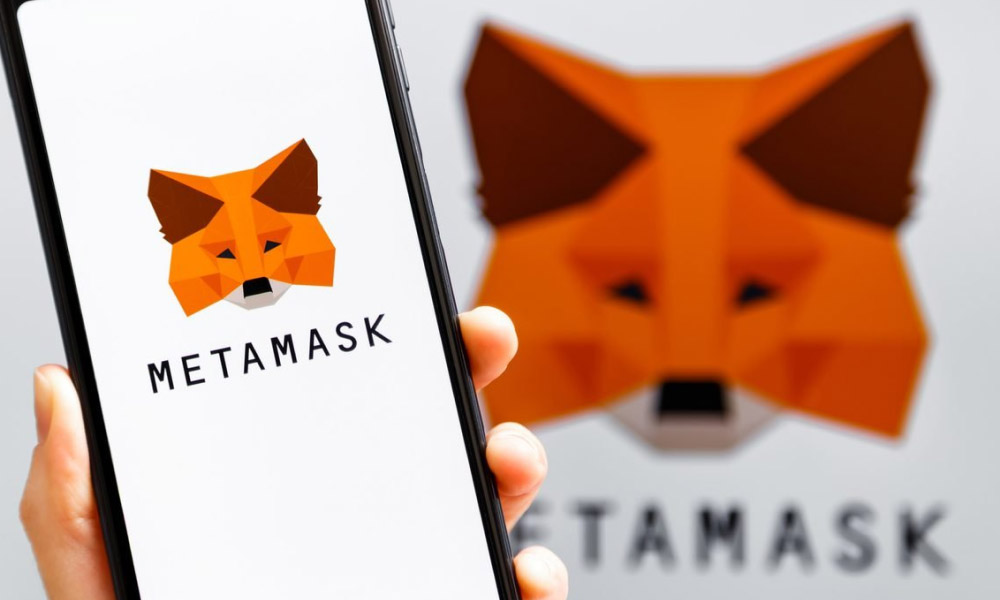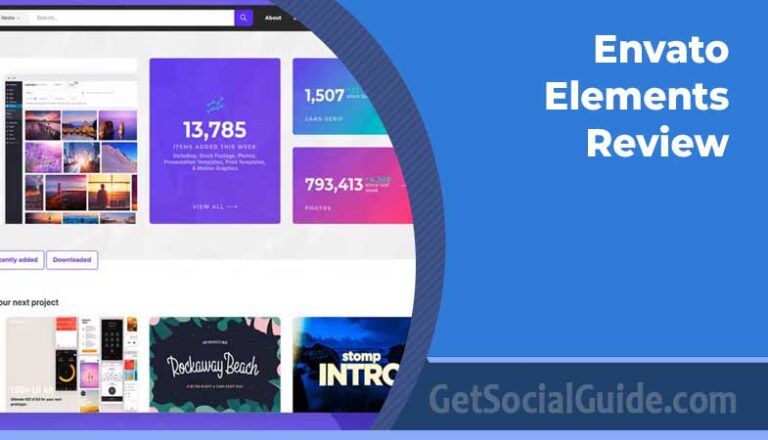Is MetaMask Safe? What You Need to Know
In the current digital landscape, the rapid growth of cryptocurrencies and decentralized finance comes with various risks and threats. As decentralized finance (DeFi) gains prominence, having a secure wallet to safeguard assets becomes crucial. MetaMask, introduced by ConsenSys in 2016, has gained popularity among crypto enthusiasts for its role in providing easy access to decentralized applications (dApps) like decentralized exchanges (DEXs), online gaming services, and staking opportunities in the DeFi sector.
MetaMask stands out as one of the most widely used tools for managing Ethereum-based tokens and accessing decentralized applications. As a free and open-source browser extension, it has become a staple for those navigating the decentralized finance landscape. However, the question of its safety arises, considering the critical nature of security in online activities, especially in the context of rising cybercrimes such as hacking, data theft, and phishing.
This discussion will delve into the security aspects of MetaMask, encompassing basic security measures and advanced techniques that MetaMask provides to ensure the security of users’ assets in the decentralized sector.

Metamask Basics
:fill(white):max_bytes(150000):strip_icc()/Metamask_logo-aca547fe6081482085662b03e2235f98.jpg)
MetaMask is an online cryptocurrency wallet accessed through a web browser. It has a specific focus on storing keys for Ethereum cryptocurrencies, limiting its functionality to Ethereum-based assets. Unfortunately, it does not support the storage of keys for other types of cryptocurrencies or digital currencies.
Ethereum operates as a blockchain network where users can develop their own applications, known as dApps, and create new cryptocurrencies. The platform also enables the creation of transaction guidelines called smart contracts, facilitating various forms of e-commerce or exchange. The native cryptocurrency of Ethereum is called Ether, and additional cryptocurrencies built on the Ethereum blockchain are referred to as tokens. Most tokens on this blockchain follow the ERC-20 standard, a set of rules established by Ethereum developers for creating new cryptocurrencies.
MetaMask serves as a wallet for storing keys related to Ether and ERC-20 tokens, and it is compatible with three different web browsers. In addition to its wallet functionality, MetaMask allows users to explore the Ethereum blockchain directly from a standard web browser.
What is MetaMask?
MetaMask stands as a revolutionary tool in the cryptocurrency space, simplifying user access to Ethereum-based decentralized apps. This versatile wallet supports ERC-20 and ERC-721 tokens, making it a standout choice in the realm of crypto wallets. Installation is seamless as it functions as a browser plugin, akin to other extensions. Once installed, users can effortlessly connect to any Ethereum-based decentralized app, enabling easy entry into yield-farming protocols and NFT marketplaces. MetaMask, available for both Chrome and Firefox browsers, offers a user-friendly experience for decentralized finance access.
The integration of the MetaMask plugin into web browsers enhances user convenience, contributing to its widespread popularity. As the demand for a decentralized web continues to rise, MetaMask serves as a gateway for users exploring decentralized applications, web browsing, blockchain technology, and DeFi. While initially designed for the Ethereum network, MetaMask extends its reach to other networks like the Binance Smart Chain (BSC) and various testnets. Its user-friendly interface and compatibility with different hardware wallets provide users with flexibility to seamlessly transition between different mainnet networks.
Introduction to MetaMask Wallet

As the realm of cryptocurrency undergoes continuous expansion, the significance of reliable and secure digital wallets has become increasingly evident. Among these, MetaMask stands out—a decentralized application (dApp) browser and cryptocurrency wallet that has amassed a substantial user base. MetaMask serves as a bridge between the familiar user-friendly internet landscape and the burgeoning blockchain world. It operates as a browser extension, facilitating interaction with the decentralized Ethereum blockchain and its applications directly from the browser without the need to run a full Ethereum node. If you’re interested in trading ETH with leverage, you can sign up for Bybit, which is currently hosting its largest Bonus Campaign. Through the provided Bybit link, users can avail themselves of a bonus of up to $30,000 upon funding their Bybit accounts.
How Does MetaMask Work?
MetaMask is constructed as a browser extension using JavaScript and establishes integration with the Ethereum network through the web3.js library. It relies on the Ethereum JSON-RPC API to communicate with Ethereum nodes.
Ethereum Network: MetaMask enables users to connect to various Ethereum networks, encompassing the main Ethereum network, test networks like Ropsten and Kovan, and private networks. Upon connection to a network, MetaMask retrieves essential network information such as block times and gas prices.
Key Management: Utilizing a hierarchical deterministic (HD) wallet structure, MetaMask allows a single seed phrase to generate multiple private keys. The seed phrase is encrypted and stored locally on the user’s device, never being transmitted over the internet.
Transaction Signing: When a user initiates a transaction, MetaMask prompts confirmation of transaction details, then signs the transaction using the associated private key. The signed transaction is subsequently transmitted to the Ethereum network via the selected node.
Smart Contract Interactions: MetaMask provides a user-friendly interface for interacting with smart contracts on the Ethereum network. Users can input the contract address and the desired function, and MetaMask generates the transaction data required for executing the function.
Security: To safeguard user funds, MetaMask incorporates security measures such as password protection, two-factor authentication, and the capability to view and manage connected decentralized applications (dApps). MetaMask also integrates with hardware wallets like Ledger and Trezor, enhancing security.
Open Source: As an open-source platform, MetaMask’s code is publicly accessible for scrutiny and contributions from the community. This fosters transparency, trust in the software, and allows customization or extension of its functionality.
How MetaMask Works?
MetaMask operates on a simple yet groundbreaking principle, serving as a user interface for identity management across various websites and facilitating the signing of blockchain transactions. It can be viewed as a bridge that simplifies our entry into the blockchain realm. Leveraging HD wallet technology, MetaMask can create numerous accounts and addresses using a single seed phrase. This seed phrase functions as the key to the wallet, underscoring the crucial importance of keeping it secure.
How to Use MetaMask?

Using MetaMask is a straightforward process:
Download and Install: Begin by downloading and installing MetaMask from the official website. MetaMask is available as an extension for Chrome, Firefox, and Brave browsers.
Create a Wallet: Upon installation, you’ll be prompted to create a new wallet. During this process, you’ll receive a secret backup phrase or seed phrase. It’s essential to write this down and store it securely.
Secure Your Wallet: Enhance the security of your wallet by setting a strong password.
Start Using MetaMask: With the wallet set up, you can now begin interacting with decentralized applications (dApps) or conduct transactions by sending or receiving Ethereum and other ERC-20 tokens.
Security
MetaMask places a strong emphasis on user security by prioritizing anonymity and entrusting private keys solely to users. The platform does not store users’ personal information, ensuring that accounts are protected by user-generated passwords during the installation and setup process. In the unfortunate event of device damage or theft, users can recover their wallet using a 12-word mnemonic phrase. This seed phrase serves as the key to accessing the wallet’s private keys and must be securely stored.
However, it’s crucial to be aware of potential vulnerabilities in MetaMask’s single-wallet recovery method across multiple devices. This introduces the wallet to risks such as hacks, malware attacks, and various crypto scams. For instance, the Banker Trojan specifically targets MetaMask wallet users. Social engineering attacks and phishing scams also pose significant threats, with users encountering fraudulent websites attempting to deceive them into revealing their seed phrases. Additionally, users may unknowingly download and install fake versions of the wallet extension, providing hackers with control over the wallet and the ability to steal users’ assets.
Understanding the Safety of MetaMask
Is MetaMask safe?
While MetaMask has gained a reputation as a secure wallet, it’s important to acknowledge that, like anything on the internet, it is not immune to attacks. Crucially, most security breaches stem from user errors rather than inherent faults in MetaMask itself.
How MetaMask Ensures User Security
MetaMask incorporates HD backup settings and features a secure identity vault, granting users complete control over their assets. The seed phrase backup serves as a crucial means to regain access to the account in case of a forgotten password.
Security Features of MetaMask

MetaMask, being a non-custodial wallet, empowers users with full control over their funds, ensuring exclusive access. This characteristic has garnered popularity among security-conscious users. The wallet utilizes blockchain security and immutability features, creating a secure and seamless user experience. With MetaMask, users can locally store their private keys on their devices, maintaining exclusive control over their funds. The wallet incorporates various security features, including the essential setup of a password and a seed phrase. The password encrypts private keys, while the seed phrase serves as a recovery mechanism if device access is lost. Additionally, MetaMask offers two-factor authentication (2FA) for an added layer of account security. It’s crucial to acknowledge that while MetaMask provides robust security features, no cryptocurrency wallet is entirely immune to risks. Users must take necessary precautions to safeguard their funds.
Encryption and Storing Your Data on MetaMask
MetaMask utilizes industry-standard encryption algorithms to protect users’ data from unauthorized access. When you create a new wallet, MetaMask generates a unique key pair that encrypts your data, ensuring its confidentiality even in the event of device theft or hacking. Furthermore, MetaMask stores your data locally on your device, providing you with complete control. This approach eliminates the potential risks associated with centralized servers, reducing the likelihood of data breaches.
MetaMask’s Phishing Detection and Protection
Phishing attacks pose a common threat to cryptocurrency wallets, with hackers employing various methods, including fake websites and social engineering, to steal users’ private keys and gain access to their wallets. MetaMask provides multiple security features to safeguard against phishing attacks, including the detection and blocking of malicious websites. When users are about to interact with a new website, MetaMask displays a warning message, alerting them to the associated risks. This feature makes it easy to avoid phishing attacks and maintain the security of your digital assets.
One significant risk to cryptocurrency wallets is the potential for unauthorized transactions, where private keys may be stolen by hackers to transfer digital assets to their own wallets. MetaMask addresses this risk through various security measures, including manual confirmation for each transaction. Users can also set transaction limits, ensuring that only authorized transactions occur. This feature minimizes the risk of losing digital assets to hackers, maintaining complete user control over their funds.
MetaMask utilizes a hierarchical deterministic (HD) wallet, generating a unique private key for each transaction to prevent key reuse. The private keys are encrypted and stored locally on the user’s device, never transmitted over the internet. Additionally, users can set a password for added encryption, ensuring protection even if the device is stolen or hacked. The wallet offers an automatic lock feature after a specified period of inactivity, further reducing the risk of unauthorized access.
Best Practices for Using MetaMask Securely
When using MetaMask, it’s crucial to adhere to best practices to ensure the safety of your funds. Firstly, always ensure you are using the latest version of MetaMask, as developers regularly enhance security features. Using an outdated version may expose you to potential attacks. Exercise caution when using MetaMask on public or shared devices. If necessary, log out of your account and clear browsing data after use. Never share your password or seed phrase with anyone, as these credentials grant access to your account and funds. Lastly, double-check the recipient’s address before sending funds, as cryptocurrency transactions are irreversible, and sending funds to the wrong address cannot be undone. Always verify the address with the recipient before initiating any transfers.
Features of MetaMask
MetaMask goes beyond being a secure Ethereum wallet, offering a range of features:
Easy-to-use Interface: MetaMask boasts an easy-to-use interface, making it suitable for individuals entering the cryptocurrency realm for the first time.
Integration with Web Browsers: With extensions available for Chrome, Firefox, and Brave browsers, MetaMask allows users to interact with different blockchains directly from their browsers, eliminating the need for additional software.
Web3 Compatibility: MetaMask pioneers Web3 compatibility, enabling seamless interaction with decentralized applications (dApps). This feature enhances the wallet’s functionality in the evolving landscape of blockchain technology.
Token Swap: The wallet facilitates direct token swapping within its interface, utilizing the best available rates from multiple decentralized exchanges.
ERC-20 and ERC-721 Support: Supporting both ERC-20 (fungible tokens, like ICO tokens) and ERC-721 (non-fungible tokens, like CryptoKitties), MetaMask enables users to manage a diverse array of digital assets.
Privacy Mode: MetaMask offers a privacy mode that enhances user security and privacy. In this mode, dApps must seek permission to access users’ accounts, providing an additional layer of control.
These features contribute to MetaMask’s versatility and user-friendly experience in the cryptocurrency space.
How to Use MetaMask Safely
When navigating the online landscape, it’s crucial to adopt safe browsing habits. Given the prevalence of phishing scams and malicious websites, it’s imperative to click only on trusted platforms.
Furthermore, the careful handling of passwords and seed phrases is paramount. Consider your seed phrase as the key to your vault; losing it or letting it fall into the wrong hands could jeopardize your assets.
Remain vigilant against phishing attacks that seek to deceive you into revealing your seed phrase. Never share your private keys or seed phrases with anyone, as these are sensitive pieces of information that demand strict security measures.
Benefits and Limitations of MetaMask

Advantages of Opting for MetaMask
MetaMask stands out as a preferred choice among users due to several compelling benefits. Its user-friendly interface, secure platform, and seamless integration with web browsers contribute to its popularity. Notably, MetaMask’s ability to directly operate Ethereum decentralized applications (dApps) serves as a significant advantage for users.
Possible Drawbacks and Constraints
Nevertheless, similar to any wallet, MetaMask comes with its set of limitations and potential risks. Users need to exercise caution regarding the possible loss of seed phrases, which are essential for accessing the wallet, and remain vigilant against the susceptibility to phishing attacks.
Comparison with Alternative Wallets
When compared to other cryptocurrency wallets, MetaMask holds its ground, particularly in terms of user-friendliness and its seamless integration with the Ethereum blockchain and decentralized applications (dApps).
Despite recurrent security concerns, MetaMask maintains transparency and provides additional features for its users:
- Open-source software: MetaMask is open-source, allowing continuous updates and improvements by the community. The code is freely accessible online.
- Easy-to-use interface: MetaMask boasts a user-friendly interface, making cryptocurrency transactions accessible even to beginners.
- Hierarchical deterministic settings: The wallet enhances security by enabling users to back up their accounts with hierarchical deterministic settings.
- In-app coin purchasing: MetaMask facilitates the direct purchase of Ether and ERC-20 tokens from Coinbase and ShapeShift, enhancing user convenience.
- Local key storage: In contrast to many servers, MetaMask doesn’t centrally store keys. Instead, it empowers users by storing keys in their browsers, providing full control.
- Community: MetaMask is an integral part of the Ethereum community, with millions of users and followers worldwide.
- Customer service: MetaMask offers various support channels, including a video demonstration on the website’s homepage, a detailed FAQ section, and a blog for additional guidance.
Pros Explained
MetaMask provides a straightforward setup process, ensuring a user-friendly and hassle-free experience. Users can download the browser extension or app and effortlessly set it up by following simple instructions or importing it using the 12-word seed phrase.
Key features of MetaMask include:
- Earn rewards via staking and holding: Users can engage in airdrops and staking on MetaMask to earn additional tokens. Staking involves locking up tokens in a vault for a specific period, allowing users to generate profits represented in APY (annual percentage yield).
- Supports a broad range of Ethereum-based tokens: MetaMask accommodates various crypto assets built on the Ethereum network. This includes popular tokens like Ethereum (ETH), Tether (USDT), USD Coin (USDC), and others, ensuring users can easily manage and interact with their preferred assets.
- Central hub for dApps: MetaMask serves as a central hub for decentralized applications (dApps), catering to builders, NFT enthusiasts, and Web 3 enthusiasts. Users gain access to a diverse range of dApps, facilitating seamless interaction and exploration of the decentralized ecosystem.
Cons Explained
While MetaMask excels in various aspects, it does have some limitations:
- No coin-to-fiat conversion: MetaMask, being a decentralized wallet, lacks direct support for third-party remittance companies. Consequently, it doesn’t offer seamless conversion of cryptocurrencies to fiat currency.
- Absence of 24/7 live customer support: Although MetaMask is proficient in many services, customer support is not a strong suit. Due to its technical nature, the absence of a 24/7 support system can be a significant drawback, especially for beginners seeking assistance.
Features
MetaMask distinguishes itself in the crypto industry by placing a strong emphasis on security, privacy, and decentralization. Users can download and install the wallet software or browser extension without disclosing personal data, ensuring anonymity and safeguarding user information.
The decentralized nature of MetaMask guarantees transparent transactions visible to connected nodes, preventing a single entity from gaining control over the entire wallet system. This is a notable contrast to platforms like the bankrupt FTX protocol, which faced unauthorized access leading to the theft of approximately $600 million in crypto funds.
MetaMask showcases versatility by supporting a wide range of tokens on the ERC-20 protocol and storing non-fungible tokens (NFTs). It seamlessly integrates with popular marketplaces like OpenSea and is compatible with multiple blockchains, including the Binance Smart Chain (BNB), Polygon, Avalanche, and more.
Despite boasting over 30 million active monthly users, MetaMask has its limitations. It does not support Bitcoin, the largest cryptocurrency by market capitalization, and lacks live customer support. Consequently, it may not be the most suitable choice for new crypto investors seeking comprehensive assistance.
Benefits of Metamask
Open Source and Community
The beauty of open-source software lies in its collaborative nature, as it is not owned by a single private company aiming for profit. Metamask’s entire code is available online, accessible to everyone at no cost. What enhances this is the active community, exceeding a million users, consistently reviewing and updating the code. Numerous users play a role in contributing to the platform’s continuous improvement.
HD Settings for Enhanced Security
Metamask employs HD (Hierarchical Deterministic) settings to bolster security. Instead of relying on a lone password, users receive a list of words called seed phrases. These seed phrases serve as a backup, enabling users to reset their accounts if they ever lose their information.
Simplified Purchases
Metamask has streamlined the process of buying Ether and ERC-20 tokens by directly integrating with two exchanges. Users have the option to select Coinbase for Ether purchases and ShapeShift for acquiring Ether or ERC-20 tokens, simplifying the entire purchasing experience.
Local Key Storage for User Control
In contrast to wallet providers that store keys on their own servers, a common practice for exchanges like Coinbase, Metamask takes a distinct approach. Your keys find their home directly in your web browser, devoid of reliance on any company’s servers. This local key storage empowers users with greater control over their public and private keys.
Metamask Risks
Risks of Using MetaMask
When it comes to MetaMask, there are certain risks that users should be mindful of. Let’s delve into these considerations.
Online Vulnerability
As an online wallet, MetaMask is more exposed to risks compared to hardware or offline “cold” wallets. It falls into the category of “hot” wallets, making assets susceptible to compromise through security vulnerabilities in the user’s device or internet connection. To mitigate this, many crypto investors opt for hot wallets like MetaMask for small amounts of cryptocurrency, reserving cold wallets for larger sums due to their lower susceptibility to hacking.
While MetaMask itself maintains a hands-off approach to user data, the browser in which MetaMask is installed does have access to certain information. Browsers typically collect data on browsing and internet usage, including MetaMask usage patterns. This data tracking may raise privacy concerns for crypto users.
Safely Using MetaMask: 4 Essential Tips
Ensuring the security of your MetaMask involves careful device management, securing your passphrase key, and staying vigilant against phishing attempts. Here are four key safety tips:
Avoid Storing Passwords in Your Browser
Refrain from storing passwords or passphrases in your browser or device, as this poses a security risk. Instead, use a secure password manager like NordPass, offering a decentralized encrypted vault accessible only by you, with advanced encryption and a data breach scanner.
Utilize a Hardware Wallet in Conjunction with MetaMask
Enhance security by using a hardware wallet to store your coins offline and syncing them with MetaMask. Hardware wallets, such as Ledger Nano X or Trezor Model One, are considered more secure since private keys and coins are stored offline.
Develop the Ability to Identify Scams
Recognizing phishing attacks is crucial for safeguarding your MetaMask wallet. Avoid clicking on suspicious links that may lead to malware downloads or fake MetaMask websites.
Regularly Scan for Malware
Invest in reliable malware protection to detect and prevent malware that could compromise your system and jeopardize your MetaMask wallet. Tools like NordVPN Threat Protection can scan downloaded files to halt malware.
Remember, maintaining the security of your MetaMask wallet involves a proactive approach and staying vigilant against potential threats.
Frequently Asked Questions (FAQs)
Can I Use MetaMask for Bulk Payments?
Yes, MetaMask is a secure option for processing bulk payments in Ethereum or ERC-20 tokens as it operates as a hardware wallet. However, it is recommended to handle only small amounts to minimize the potential risks associated with the usage of MetaMask and other cryptocurrency wallets. Disclosing private keys poses a risk of potential hacking.
What Type of Wallet is MetaMask?
MetaMask is a software cryptocurrency wallet specifically designed for interacting with Ethereum networks. Users can access their Ethereum wallet through either a mobile application or a browser extension, facilitating communication with decentralized applications (dApps).
Is It Worth Using MetaMask?
Certainly, MetaMask is a secure cryptocurrency wallet. Its security is contingent on the user’s device and responsible usage. Ensuring the protection of the wallet’s password or seed phrase is crucial. The active community of software developers consistently updates and enhances its open-source code.
Is MetaMask Anonymous?
While MetaMask is a secure option, it does not provide complete anonymity. Users seeking full anonymity in transactions should be aware that MetaMask does not offer this feature.
Can MetaMask Hold Bitcoin?
No, MetaMask does not support Bitcoin. It is exclusively designed for Ethereum and only accommodates ERC-20 assets, limiting its functionality to the Ethereum ecosystem.
Should I Keep My Coins in MetaMask?
Yes, storing cryptocurrency on MetaMask is considered safe as the platform does not manage private keys. MetaMask ensures security by not having access to sensitive user data such as seed phrases.
What Makes MetaMask Unique Among Other Wallets?
MetaMask stands out due to its seamless integration with browsers and its ability to interact with Ethereum’s decentralized applications (dApps).
Can I Use MetaMask on My Mobile?
Certainly, MetaMask provides mobile applications for both iOS and Android platforms.
Is MetaMask Only for Ethereum?
While initially tailored for Ethereum, MetaMask now extends its support to Ethereum-compatible blockchains, broadening its compatibility.
What if I Lose My MetaMask Seed Phrase?
Losing the seed phrase implies a permanent loss of access to your wallet. Safeguarding the seed phrase is crucial to retaining access to your funds.
Does MetaMask Charge Any Fees for Transactions?
MetaMask itself does not impose fees, but transactions on the Ethereum network may incur gas fees.
Conclusion
MetaMask emerges as a potent tool in the realm of decentralized finance, seamlessly blending the convenience of a digital wallet with the functionalities of an Ethereum gateway. It provides users with a secure, user-friendly, and empowering platform. In the complex landscape of Ethereum and decentralized finance, where navigation can be daunting, MetaMask stands out. Its comprehensive ecosystem, robust security features, and user-centric design significantly contribute to making the decentralized web more accessible. Whether you’re a newcomer to blockchain or a seasoned crypto enthusiast, MetaMask offers you the keys to unlock the vast potential of the decentralized web.





